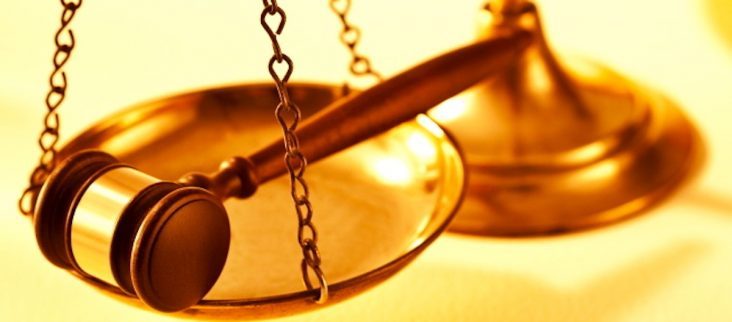Dupwe appointed special justice for casino case
by September 15, 2016 6:29 pm 215 views

Gov. Asa Hutchinson on Thursday appointed Warren Dupwe of Jonesboro as a special associate justice to decide whether an amendment authorizing three casinos will stay on the ballot.
Dupwe replaces Justice Courtney Goodson, who has recused from the case, Chuck Lange and Bill Walmsley, et al. v. Honorable Mark Martin, Secretary of State.
Issue 5 would create a constitutional amendment authorizing the building of one casino each in Washington County, Miller County and Boone County. The casinos would be required to pay the state 18% of their net and would pay 1.5% to the city where they are located and .5% to their local counties. An Arkansas Gaming Commission would regulate.
Chuck Lange and Bill Walmsley with the Committee to Protect Arkansas’ Values/Stop Casinos Now filed suit in the Arkansas Supreme Court Sept. 6 saying the amendment violates federal law and is unconstitutional, that the ballot title is misleading, and that the amendment’s signature collection process was faulty.
The group supporting the measure, Arkansas Winning Initiative, on Thursday reported in its required monthly Arkansas Ethics Commission filing that it had raised $500,000 in August, including a $400,000 donation from Cherokee Nation Businesses and a $100,000 loan from Marc Williams of Branson. So far, Cherokee Nation Businesses has donated $1.4 million of the $1.55 million raised for the initiative. Cherokee Nation Entertainment, which operates nine casino properties in Oklahoma, would manage the Washington County facility.
In other ballot initiative news, attorneys for petitioners suing to keep from the ballot a proposed amendment that would limit judgments and attorneys’ fees in medical lawsuits filed a brief in the Arkansas Supreme Court today saying the ballot title is insufficient.
Issue 4 would require the Legislature to limit non-economic damages in medical lawsuits to at least $250,000 and would limit attorneys’ fees to 33 1/3% of judgments after expenses.
The brief by attorneys with the Committee to Protect AR Families and their co-petitioners argued that the ballot title does not explain the amendment would allow one department of government, the Legislature, to exercise power delegated to another, the courts. Meanwhile, the amendment does not inform voters they are being asked to shift the right to determine damage awards from juries to the Legislature.
It also says the ballot title is misleading. The amendment says it doesn’t amend the right to trial by jury when in fact it does, and it contains partisan language by referring to “excessive contingency fees,” the brief says. It says the ballot title does not explain that the Legislature would have the authority to broaden the definition of “health-care professional,” “health-care business” and “medical injury.”
The brief says the ballot title fails to define the term “non-economic damages” or “health-care services.” The way the ballot title is worded, medical judgments would be limited to 33 1/3% not just in medical injury cases but in all cases.
The group sponsoring the amendment, Health Care Access for Arkansans, reported to the Arkansas Ethics Commission that it had raised $62,400 during the month of August, raising its total contributions to $933,110. Of the August amount, $22,000 came from 11 skilled nursing facilities while $40,000 came from Louisiana-based Southern Administrative Services, an administrative services provider.
Arkansans Against Legalized Marijuana filed a brief Thursday in their case opposed to the Arkansas Medical Marijuana Amendment. Issue 6 would set up for-profit dispensaries allowing patients with qualifying medical conditions to posses marijuana legally.
The brief claims the ballot title falsely tells voters the amendment limits the use of marijuana when in fact patients would have unlimited use so long as they do not possess more than 2.5 ounces at any one time and can find enough people to give them marijuana.
It also says the ballot title fails to tell voters that the amendment permits marijuana dispensaries to sell food and drink containing marijuana; that it doesn’t explain that the amendment’s prohibition against discrimination will affect employers, landlords, churches and schools; and that it doesn’t tell voters that doctors, lawyers and other professionals would be prevented from being denied a license to practice or from being disciplined for using marijuana.
